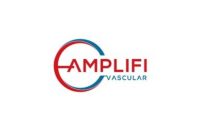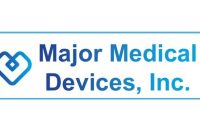DUBLIN, Ohio, November 28, 2018 — Cordis, a Cardinal Health company (NYSE: CAH), today announced that the U.S. Food and Drug Administration (FDA) has approved its INCRAFT® AAA Stent Graft System for use in complex access anatomies. The INCRAFT system is an ultra-low profile and flexible endovascular aneurysm repair (EVAR) system designed to treat infrarenal abdominal aortic aneurysms (AAA).
The INCRAFT system was given a favorable recommendation on June 12 by a Circulatory System Devices Panel of the Medical Devices Advisory Committee, following a review of clinical data from the pivotal INSPIRATION trial, a prospective, multi-center, single-arm study designed to evaluate the safety and effectiveness of the INCRAFT system in patients with AAA. The trial showed that the INCRAFT system met the primary safety and effectiveness endpoints, with a low rate of major adverse events at 30 days, high rates of successful aneurysm treatment and survival, and no aneurysm ruptures through four years of follow up.
“We welcome the recent FDA approval of the INCRAFT stent graft system which offers U.S. physicians a treatment option for patients with AAAs who otherwise might not be suitable for other EVAR devices,” said Dr. Michel Makaroun, M.D., Professor and Chair of vascular surgery at the University of Pittsburgh Medical Center, and Co-Principal Investigator of the INSPIRATION study. “While EVAR systems have advanced rapidly over the years, there still remains a need for a low-profile EVAR device that is designed to be easy to deliver in complex access anatomies while facilitating precise placement.”
“INCRAFT is an attractive new ultra-low profile EVAR option that allows for bilateral in-situ adjustment during the procedure, helping to minimize the need for additional components or extensions,” said Dr. Takao Ohki, Chairman and Professor of Surgery and Chief of Vascular Surgery at the Jikei University School of Medicine in Tokyo, Japan and Co-Principal Investigator of the INSPIRATION study.
While several EVAR devices are currently available in the U.S., treatment options are limited for many AAA patients with small femoral or iliac arteries or with heavily calcified or tortuous vessels that could lead to complications during the introduction of EVAR devices.
“We are excited to announce INCRAFT FDA approval, which will enable high-risk AAA patients in the U.S. to benefit from more than a decade of investment in R&D and clinical research,” said Patrick Holt, president of Cordis at Cardinal Health. “Cordis continues to invest in expanding our product offering to meet our global customers’ needs, whether via innovations like our Mynx ControlTM Vascular Closure Device and our RADIAL 360 portfolio, or via strategic alliances, which brought the EluNIRTM drug-eluting coronary stent to the U.S.”
The INCRAFT system, which received a CE (Conformité Européenne) mark in 2014, is commercially available in many global geographies, including Canada and countries in the European Union, the Middle East, South America and Asia Pacific.
About Cardinal Health
Cardinal Health, Inc. is a global, integrated healthcare services and products company, providing customized solutions for hospitals, healthcare systems, pharmacies, ambulatory surgery centers, clinical laboratories and physician offices worldwide. The company provides clinically proven medical products, pharmaceuticals and cost-effective solutions that enhance supply chain efficiency from hospital to home. To help combat prescription drug abuse, the company and its education partners created Generation Rx, a national drug education and awareness program. Backed by nearly 100 years of experience, with approximately 50,000 employees in nearly 46 countries, Cardinal Health ranks #14 on the Fortune 500. For more information, visit cardinalhealth.com, follow @CardinalHealth on Twitter, @cardinalhealthwings on Facebook and connect on LinkedIn at linkedin.com/ company/cardinal-health.
About Abdominal Aortic Aneurysms
An abdominal aortic aneurysm is a bulging, weakened area in the wall of the lower part of the aorta, the main artery of the body, which, unless treated, can rupture and lead to a life-threatening hemorrhage. An estimated 1.5 million people in the United States have AAAs, and more than 200,000 new diagnoses are made each year1. These aneurysms account for approximately 10,000 deaths annually in the U.S2. Once identified, treatment options for AAAs include medical monitoring, open surgical repair, or endovascular aneurysm repair (EVAR), a minimally invasive catheter-delivered treatment option with the potential to reduce perioperative mortality and morbidity.
1Lifetime Risk and Risk Factors for Abdominal Aortic Aneurysm in a 24 Year Prospective Study: the ARIC Study. Atherosclerosis, Thrombosis, and Vascular Biology. 2016;36:2468-2477
2Centers for Disease Control and Prevention (CDC), 2017
3Ohki, One-Year Outcomes of the INSPIRATION Study of the INCRAFT® Stent-Graft System for Treatment of Abdominal Aortic Aneurysms (AAAs), Society for Vascular Surgery 2015






